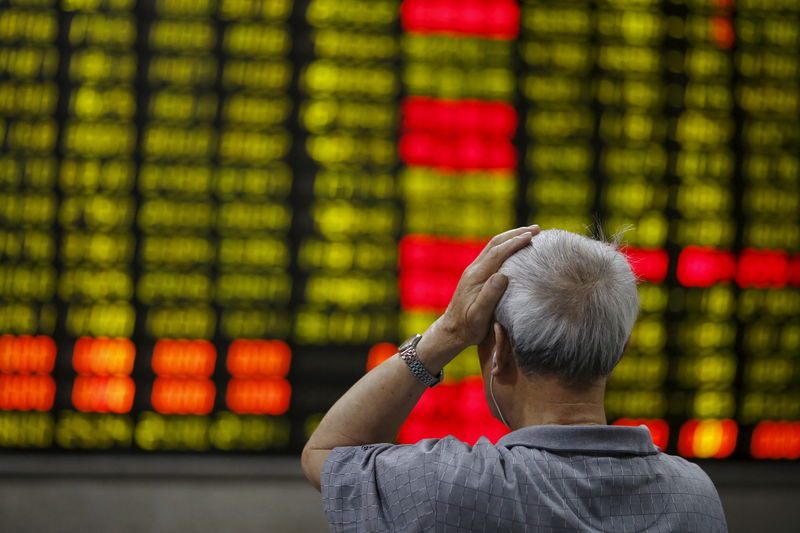Bitcoin price today: falls to 2-week low below $113k ahead of Fed Jackson Hole
Investing.com-- Most Asian stocks fell on Wednesday as investors watched out for U.S. trade deals ahead of the July 9 tariff deadline, while Japan stocks nursed sharp losses after President Donald Trump cast doubt on a deal with Tokyo.
Major U.S. stock indexes saw a mixed performance overnight, with the S&P 500 and NASDAQ Composite falling on tech losses. Wall Street futures were largely unchanged in Asian trading hours on Wednesday.
Trump says won’t extend July 9 deadline, casts doubt on Japan deal
President Trump said on Tuesday that he won’t extend the July 9 deadline for countries to finalize trade agreements with the U.S., signaling that if no deal is reached by then, affected nations will receive formal letters outlining the tariff rates they will face.
There is a doubt if a deal could be reached between Japan and the U.S., Trump added while reiterating the possibility of imposing tariffs as high as 30–35% on Japanese imports.
Japan’s Nikkei 225 fell 1% on Wednesday, extending sharp losses. The broader TOPIX index lost 0.5%.
Despite scepticism about Japan, the U.S. sees promise in a trade pact with India. U.S. Treasury Secretary Scott Bessent confirmed that negotiations were “very close” to yielding an interim deal.
South Korea’s KOSPI drops 1.5%
Other regional markets also slipped as uncertainty over tariff rates persisted, with investors wary of Trump’s shifting positions ahead of the looming deadline.
South Korea’s KOSPI led losses with a 1.5% drop. The heavyweight chip stock SK Hynix (KS:000660) declined nearly 4%.
China’s Shanghai Composite index fell 0.1%, while the Shanghai Shenzhen CSI 300 was largely muted.
Hong Kong’s Hang Seng rose 0.5% in a catch-up trade after returning from a holiday.
Last week, Trump announced that the U.S and China have reached a trade agreement, finalising terms outlined in the Geneva meeting.
Elsewhere, Singapore’s Straits Times Index rose 0.4%, while futures tied to India’s Nifty 50 were largely unchanged.
Australia retail sales rebound in May; stocks edge up
Data on Wednesday showed that Australia’s retail sales rebounded in May, although the growth was slightly below forecasts, as a decline in food spending offset a rebound in clothing purchases.
Retail sales rose 0.2% month-on-month in May from a 0.1% decline in the prior month, but came in below expectations of a 0.3% growth.
The S&P/ASX 200 index rose 0.3% on Thursday. In corporate news, Qantas Airways Ltd (ASX:QAN) shares dropped more than 4% after the airline confirmed that a cyber breach at its contact centre exposed customer data.
